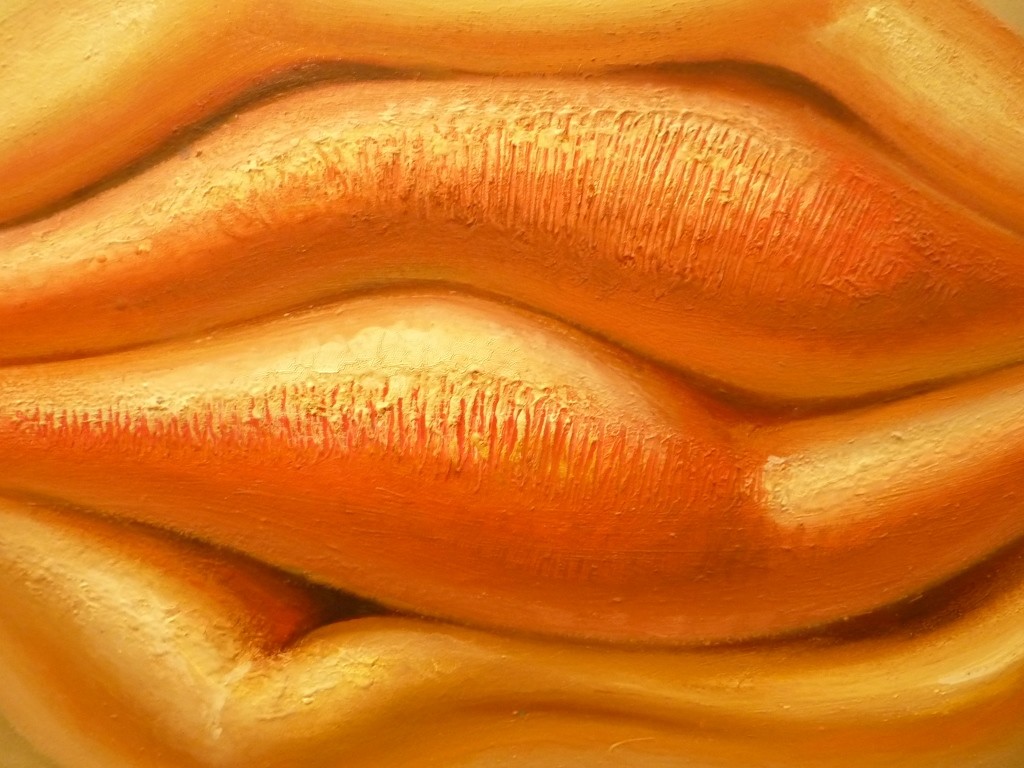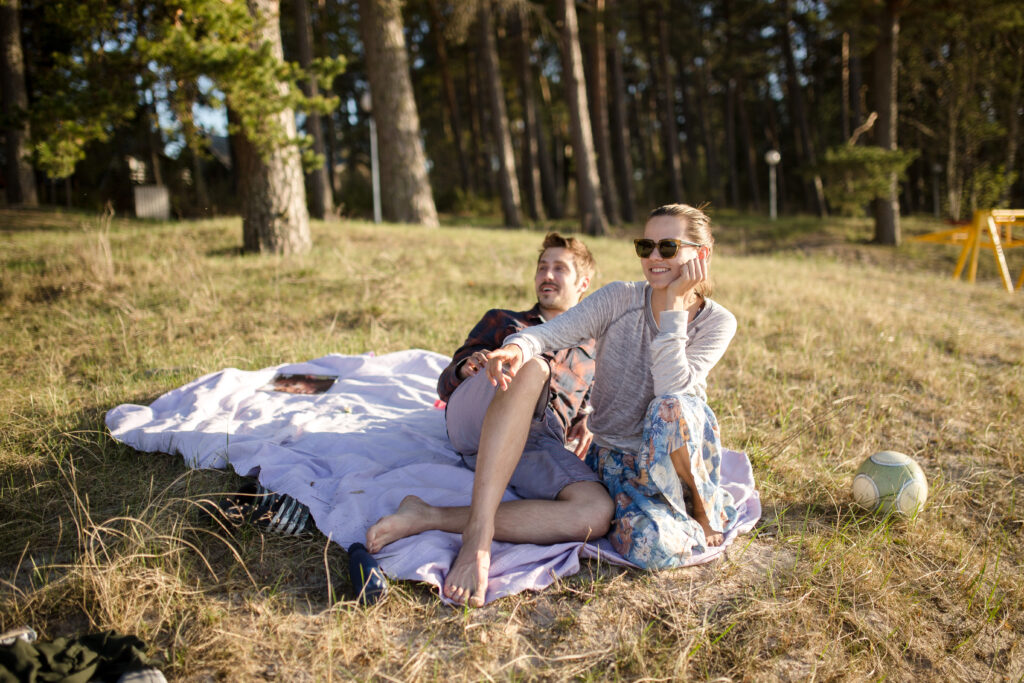When you fall for an Estonian, English eventually feels like a third wheel – to love fully, you want the words that shaped their childhood; here are twenty ways to say it – properly, and from the heart.
If you have an Estonian boyfriend, girlfriend, husband or wife, the moment will inevitably arrive when English feels insufficient and you long to speak the language of their childhood – to say something tender not as a visitor, but as one of their own.
The difficulty, of course, lies in the words. Estonian is precise, nuanced and resistant to easy translation. For years I searched for a reliable collection of phrases and found none that satisfied. In the end, I resolved to compile my own.
1. I like you a lot – Sa meeldid mulle väga
2. You’ve got a great smile – Sul on väga ilus naeratus
3. You have beautiful eyes – Sul on ilusad silmad
4. You’re beautiful – Sa oled ilus
5. You look wonderful – Sa näed väga hea välja!
6. I have so much fun with you – Sinuga on alati nii tore
7. You are very dear to me – Sa oled mulle väga kallis
8. You make me very happy – Sa teed mind väga õnnelikuks
9. You fill my heart with joy – Sa täidad mu südame rõõmuga
10. You’re the one for me – Sa oled mulle ainus ja õige

11. I love you more and more each day – Ma armastan sind iga päevaga üha rohkem
12. You are the most important person in my life – Sa oled mulle kõige tähtsam
13. I love you with all my heart – Armastan sind kogu südamest
14. You are my sun, my moon, and all my stars – Sa oled mu päike, tähed ja kuu
15. I dream of you day and night – Unistan sinust nii päeval kui ööl
16. I miss you – Ma igatsen sind
17. I am madly in love with you – Olen sinusse pööraselt armunud
18. I cannot live without you – Ma ei suuda sinuta elada
19. I love you – Ma armastan sind
20. Will you marry me? – Kas sa abielluksid minuga?
See also Tania Lestal’s blog, Estonia – Paradise of the North. *This article was originally published on 11 September 2014.


How interesting that the flower chosen to decorate the article is known as a common funeral flower in Estonia and hardly ever given to someone alive.
The Calla lily is one sexy looking flower to me. An apt choice.
The calla lily flower is actually one of the most traditional wedding flowers! The name calla comes from a Greek word for beauty – κάλλος. It is symbolic of marriage and purity because of its white color and its trumpet-like shape, similar to a woman’s shape. They are traditional symbols of divinity, marital bliss and true devotion. As the cone-line flowers blossom in spring, they have become symbols of youth and rebirth. It is true that, ironically, it is also used at funerals – but that is because it is also the symbol of rebirth and resurrection! We certainly looked at it from a romantic angle! Source: http://bfloral.com/top-10-wedding-flowers/. Best regards, Editor/www.estonianworld.com
Yeah, maybe I’m too cynical, but most of these are what a native English-speaker would say translated to Estonian word for word. There’s a term for that – “anglitsism”. You will be understood if you speak like that and there is nothing wrong with the grammar, but it’s not considered good style to use if your intent is to speak/write proper Estonian. It just sounds a bit foreign and unnatural. Of course communicating affection is problematic in general over here and we have a long way to go yet if we don’t want to go extinct, but we do have ways of saying nice things to each other that are not obviously borrowed from English-speaking parts of the world.
“Ma armastan sind” is still “Ma armastan sind” (I love you), no matter how we say other nice things to each other! You are, indeed, too cynical!
Geez, how is correcting a clumsy translation being cynical?
Thank goodness there are people not allowing this to pass.
I agree with “Siin Tallinn” – nothing wrong with grammar and you will be understood but some of these expressions are too “formal” and would come across too awkward, too translated word by word.
No 6. “Mulle meeldib sinuga aega veeta” – too formal. Instead – Sinuga on alati nii tore (I have so much fun with you) – this is much more personal.
No 8. If my Australian bf would tell me this long sentence: “Keegi ei pane mind tundma nii nagu sina seda teed” then I would clap my hands and it would make me smile, but it’s again too formal. It sounds great in English, but not in Estonian. Instead – Sa teed mind väga õnnelikuks (You make me (feel) very happy) or Ma olen väga õnnelik sinuga.
No 12. Sa tähendad mulle tervet maailma – again, great in English, too formal in Estonian. Instead – Sa oled mulle väga kallis (You are very dear to me)/ Sa pled mulle kõige olulisem (You are the most important to me).
No 14. Sa oled mu elu päikesepaiste. Instead – Sa oled mu päike, tähed, kuu (You are my sun, stars, moon). Choose one or use them all 🙂 Happy romancing!
Spelling error: No 12. Sa OLED mulle kõige olulisem (You are the most important to me).
Feedback, whether positive or critical is always beneficial Thank you for bringing to my attention that some of these points appear too formal. When I complied the list I sought the advice of a native Estonian speaker because I wanted to know how you say these phrases in Estonian. Personally, I sometimes use romantic phrases at the end of birthday cards, anniversary cards, emails etc. The aim is to bring a smile to the face of the person you love. We may not always say these terms of endearment out loud but generally our love ones appreciate the words when they are written down.
‘Musimops’ is an example of an Estonian term of endearment that is difficult to translate into English. I know what the word means but to give it an English equivalent seems near to impossible.
1. seems a little confusing to me. When I translate it, “Ma meeldid mulle vaga” it’s something like “I like myself a lot”. I think “Ma meeldin sulle vaga” is closer maybe?
“SA meeldid mulle väga” (“you, not “I”)
it’s a bit like the Spanish construction of liking something – the thing that is liked is the grammatical thing doing the liking.
Hi there, I’m a bit baffled, and as good as google translate thinks it is I am struggling to find a suitable translation in Estonian for “Babezilla”… Yip. Would sincerely appreciate any help with the translation 😉
Babezilla is a very-very hot girl? Then maybe “(täiega) pandav tüdruk/naine” or “väga seksikas tüdruk/naine” (really hot/sexy girl/woman) but that isn’t something an adult would say.. Babezilla doesn’t feel like a word adults would use.. Maybe guys between themselves? I would use “veetlev”, “kütkestav” (appealing, charming), “ime-ilus/pilt-ilus” (marvellous, delightful), “silmipimestavalt veetlev/kütkestav” (blindingly beautiful/charming). Something along the lines..
Just been told by my fiancé to never never say pandav in estonia or I’ll get slapped hahaha, apparently it means like “fuckable”.
no it’s a great word
hahaha, “babezilla” reminds me of a song in Spanish I heard in the Dominican Republic, titled “El Mujeron”. Not sure if it is translatable, certainly Google translate knows nothing about it. It can also mean different things depending on context and how used. It can either mean (as in the song) a really “hot” and sexy woman, or a gross and unsexy woman. What is interesting is that the word has gone “beyond feminine” and is made masculine, with a masculine (I believe) augmentative (opposite of diminutive). Dunno if Estonian has any word or expression like that?
how to agree my girlfriend in estonia ? she is too much angry with me ?
“Ei noh, sa oled suht normaalne.”
*Realistic*
Correction:
20. Noh, kas tuled mulle naiseks vä?